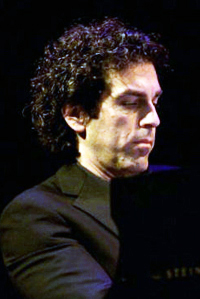
Panagiotis Liaropoulos
Position
Assistant Professor
Affiliated Departments
Telephone
617-747-8069
Personal Websites
For media inquiries, please contact Media Relations
Career Highlights
- Commissions and performances with the Boston Pops, Albany Symphony, ALEA III, Louisiana Sinfonietta, Cassatt String Quartet, Aspen Music Festival Chamber Ensemble, New Paths in Music Festival Chamber Orchestra, and Greek Ensemble for Contemporary Music
- Recordings include Music for Solo Flute
- Publications include "Lament" for String Quartet and "Martyria" for Chamber Ensemble and Mezzo Soprano
- Leader of the Greek Music Ensemble
Awards
- Second Prize in the Dimitri Mitropoulos International Composition Competition (2005)
- First prize in the ALEA III International Composition Competition (2002)
Education
-
School NameBoston UniversityState or ProvinceMassachusettsDegreeDoctor of Musical Arts (D.M.A.)Field of StudyMusic Theory and CompositionDate Degree Received
-
School NameAristotle University of ThessalonikiCountryGreeceDegreeBachelor of Music (B.M.)Field of StudyMusic EducationDate Degree Received
-
School NameNew Music Conservatory of ThessalonikiCountryGreeceDegreeArtist Diploma (A.D.)Field of StudyMusic Theory and CompositionDate Degree Received
-
School NameNational Music ConservatoryCountryGreeceDegreeArtist Diploma (A.D.)Field of StudyPiano PerformanceDate Degree Received
In Their Own Words
